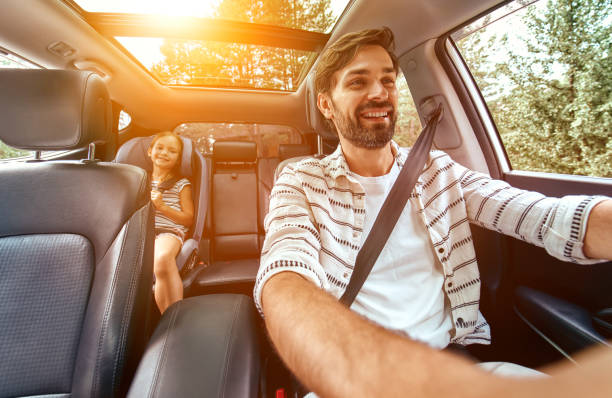Introduction
Traveling can be an exhilarating experience, offering new adventures, cultures, and perspectives. However, ensuring your safety while traveling is paramount. This article provides comprehensive travel safety tips to help you navigate your journeys securely. From pre-trip preparations to on-the-ground safety practices, we cover everything you need to know to stay safe while exploring the world.
Pre-Trip Preparations
Before embarking on any trip, thorough preparation is crucial. Start by researching your destination. Understand the local customs, laws, and potential risks. Check travel advisories from your government and register your travel plans if possible.
Additionally, ensure that your travel documents are in order. This includes having a valid passport, necessary visas, and copies of important documents. Invest in travel insurance that covers medical emergencies, trip cancellations, and theft or loss of belongings.
Health and Vaccinations
Health is a significant aspect of travel safety. Visit a travel clinic or your healthcare provider to get the required vaccinations for your destination. Carry a basic first-aid kit with essentials like pain relievers, bandages, antiseptics, and any prescription medications you need.
Stay hydrated, avoid street food from dubious sources, and be cautious about water quality. In some areas, it’s safer to drink bottled water and avoid ice in your drinks.
Money and Valuables
Managing money and valuables while traveling can be challenging. Carry a mix of payment methods, including cash, credit cards, and debit cards. Avoid keeping all your money in one place. Use a money belt or a hidden pouch for storing cash and important documents.
Be wary of ATM scams and always use machines located in reputable areas. Inform your bank of your travel plans to avoid any issues with your cards while abroad.
Accommodation Safety
Choosing the right accommodation plays a significant role in travel safety. Opt for hotels or rentals with good reviews and security measures. When you check in, familiarize yourself with the emergency exits and procedures.
Always lock your doors and windows. Use the hotel safe for valuables, and if one isn’t available, carry them with you. Avoid sharing your accommodation details with strangers.
Transportation Safety
Whether you’re flying, driving, or using public transport, transportation safety is crucial. For air travel, follow airport security guidelines, keep an eye on your belongings, and avoid accepting packages from strangers.
If you’re driving, make sure your vehicle is in good condition. Familiarize yourself with local driving laws and conditions. Use reputable car rental companies and avoid driving at night in unfamiliar areas.
For public transportation, stay alert and keep your belongings close. Avoid unlicensed taxis and rideshares. It’s often safer to use services recommended by your accommodation or trusted apps.
Personal Safety and Awareness
Staying aware of your surroundings is essential for personal safety. Avoid displaying expensive items like jewelry, cameras, or electronics. Blend in with the locals as much as possible to avoid drawing attention.
Be cautious when interacting with strangers. Trust your instincts and avoid situations that make you uncomfortable. Use a buddy system if possible, and always inform someone of your whereabouts.
Emergency Preparedness
Despite all precautions, emergencies can still occur. Prepare for them by knowing the local emergency numbers and the location of the nearest embassy or consulate. Carry a list of emergency contacts, both local and from home.
Have a plan in case you lose your passport or other important documents. Keep digital copies of these documents and consider using secure cloud storage.
Conclusion
Traveling can be one of life’s most enriching experiences, but it’s essential to prioritize your safety. By preparing adequately, staying vigilant, and knowing how to respond to emergencies, you can ensure a safe and enjoyable journey. Remember, the key to travel safety lies in being informed and prepared.
FAQs
1. What should I include in my travel first-aid kit?
A basic travel first-aid kit should include pain relievers, bandages, antiseptics, adhesive tape, tweezers, scissors, and any prescription medications. It’s also useful to carry rehydration salts and motion sickness tablets.
2. How can I avoid getting scammed while traveling?
To avoid scams, do thorough research about common scams in your destination. Be cautious with strangers offering unsolicited help, and avoid street vendors selling counterfeit goods. Use official and reputable services for tours and transportation.
3. Is travel insurance necessary?
Yes, travel insurance is highly recommended. It provides coverage for medical emergencies, trip cancellations, lost luggage, and other unforeseen events. It’s a small investment for significant peace of mind.
4. How do I keep my money safe while traveling?
Keep your money and valuables secure by using a money belt or hidden pouch. Avoid carrying large amounts of cash and use credit/debit cards whenever possible. Store backup funds and important documents in a hotel safe.
5. What should I do if I lose my passport?
If you lose your passport, report it to the local police and your nearest embassy or consulate immediately. They can assist you with obtaining a replacement. Having digital copies of your passport can expedite the process.

